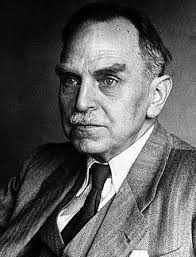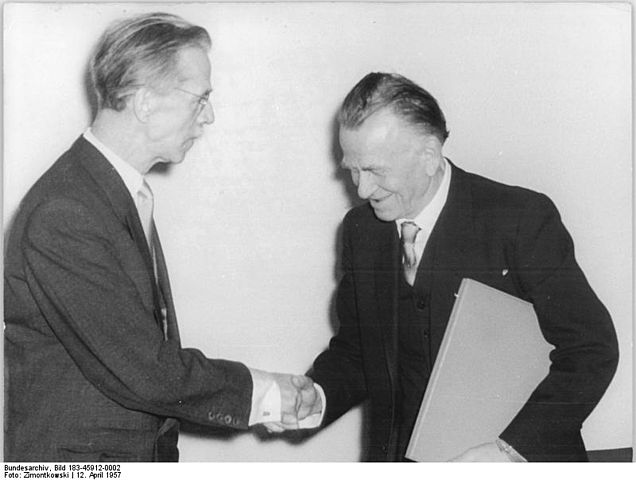Otto Hahn may very well have been the man who made one of the most important scientific discoveries of all-time. He was an expert in radioactivity and radiochemistry who discovered nuclear fission. His work did lead to him receiving the Nobel Prize in Chemistry.
Early Years and Education
The Father of Nuclear Chemistry was born on March 8, 1879, in Prussia. He grew up in a home environment that was not lacking in any way. While not tremendously wealthy, the family was well-to-do enough that Otto never had to go without much. At the age of 15, he developed a strong interest in chemistry. His father wanted Otto to become an architect, but the young man was determined to become an industrial chemist.
In 1897, Hahn took his secondary school final exams and did well enough that he could continue on with his education. He enrolled in the University of Marburg. At the university, he would go on to study chemistry and mineralogy. The secondary subjects he studied were physics and philosophy.
Hahn also studied at the University of Munich and would return to Marburg for further learning. He would complete a doctorate go on to serve in the military. Eventually, he returned to Marburg to work on staff.
A Promising Career Begins
 To improve his English language skills and to further his career in the sciences, Hahn left Germany for London, England, in 1904. He took a position at the University College London to work with Sir William Ramsey. Ramsey had gained much acclaim for having discovered inert gases.
To improve his English language skills and to further his career in the sciences, Hahn left Germany for London, England, in 1904. He took a position at the University College London to work with Sir William Ramsey. Ramsey had gained much acclaim for having discovered inert gases.
Radiochemistry was a very new field in the early 1900s and Hahn began to work in it. In time, he would become a pioneer in the field. His burgeoning brilliance was first on display when he made the discovery of radiothorium, which is also known as thorium-228.
Hahn returned to Germany in 1906 and went to work at the University of Berlin. He also had a research lab built at, of all places, a local woodworking shop. Through his tireless research work, he discovered both mesothorium I and mesothorium II. He also made another amazing discovery when he was the first person to definitively prove radium had a “mother” substance, which is ionium.
Achieving Prominence in the Sciences
In 1908, Hahn was able to take the previously misunderstood and incorrect assumptions about radioactive recoil and prove they were not accurate. He offered a much more professional sound opinion of what radioactive recoil truly was.
Otto Hahn was definitely becoming a major figure in the world of physics and chemistry. He would go on and procure a major position at the Kaiser Wilhelm Institute for Chemistry. Hahn became the Chairman of the Radioactivity Department at the institute.
Nefarious Weapons
Hahn, like many of his fellow Germans, was drafted into the military during World War I. His unique skills in chemistry made him very valuable to the secret projects that were revolving around chemical and gas warfare. His involvement in these garish weapons of mass destruction can be considered a dark period in his life and career.
Hahn’s Discovery of Nuclear Fission
Among all the achievements that Otto Hahn attained in his field, the great discovery of nuclear fission is what he is most well-known for. Ida Noddack was a chemist who made many unique discoveries noted that there were exceptions to the notion that when atomic numbers were greater than 92 emerged the minute uranium atoms were exposed to neutrons.
Few people thought Noddack was credible in this regard. Hahn did and he built upon Noddack’s work. This would eventually lead to the discovery of nuclear fission. In November of 1945, Hahn received the Nobel Prize for Chemistry for these discoveries. Without his work, much of what the world has achieved today thanks to nuclear fission might not have otherwise been attained.
Hahn’s Last Years
Otto Hahn passed away at the age of 89 on July 28, 1968. Sadly, his death was an accident and it occurred after he had suffered a fall. His legacy is one of incredible accomplishments that will be recognized for decades to come.
